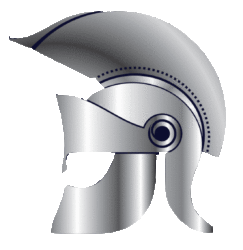It differs from general management because of the limited scope of a project, concrete deadlines and specific deliverables. A project manager has to balance the big picture with the daily tasks of all employees involved in the assignment. They ensure that everything that needs to be done in order to make something happen can realistically be done by employees in the time allotted with the tools everyone has at their disposal. They may use pre-existing frameworks, such as Agile or Waterfall methodologies, to help guide the process. There are so many things to juggle during a process, from leadership expectations to client care and employee management, that a trusted PMP will always be an asset to any company.
These professionals establish guidelines to determine a project’s success. They also monitor updates to make sure progress aligns with the organization’s original goals and vision. Scrum uses small teams, quick development cycles, regular communication, and assigned tasks to execute agile concepts to keep the project structured and on schedule. Most agile adopters use scrum, making it the most popular agile methodology.
Interested in pursuing a degree?
Instead, the best project managers know how to relinquish some control and delegate to team members. Milestones are predetermined achievements that help track project progress. These checkpoints are decided on before project manager courses a project begins, so the project manager and team know when they are on track to achieve deliverables. Without milestones, it’s difficult to know if the project is on the road to success or needs to reroute.
But this doesn’t mean you must be technical to become a project manager. As soon as the project manager is assigned, however, he or she needs to fully engage in the above work which should culminate in a project being chartered and formally assigned. Project management has always been an important function in business, and it’s only getting more important as time goes by. Meredith Galante is a full-time freelance writer living in New York City. She’s been covering small businesses, the wine and spirits industry, and more for the last 10 years.
Senior Level Project Manager
Project managers plan, budget, monitor and report on the project with project management tools, sometimes pitching the idea of the project or being assigned to it once it’s been approved. They make sure the project plan is sound, report regularly on its progress and monitor it to ensure that its execution stays within the approved budget and schedule. Requirements for master’s degrees in project management vary by school, often including case studies, hands-on experience, and projects to mirror the tasks project managers are likely to encounter in their careers.
The project manager will typically write the project plan, run team meetings, assign tasks and do quality control tests to ensure everything is running smoothly. A project manager can’t carry the entire project on their back, though. One of their key duties, in fact, is knowing how to entrust various responsibilities to team members. Project team members need clear directions from the project manager and other project leaders so that they can execute the work that’s expected from them.
Project managers can work in many different industries, including construction, health care, tech, finance, government, and IT. A project manager is a professional who leads a team through the project life cycle by planning, budgeting, scheduling and tracking a project plan. The project plan thoroughly explains how the project will be executed and includes a budget, timeline, schedule, roles and responsibilities among other things. Due to these responsibilities, project managers must exhibit a variety of soft skills and technical skills to effectively manage an entire team and successfully meet project goals. To avoid stress, project management professionals must be well-versed in the project management process. A successful project manager should have excellent time management skills and always be focused on achieving the team’s project objectives.
- Besides collaborating with these teams, project managers use project management software to track costs, tasks, time and project progress.
- Each option has its own education and professional experience requirements.
- To make sure a project is progressing as planned, you must constantly measure it and compare those metrics against the plan you created.
- In simpler terms, project management sees that companies accomplish their goals for success.

